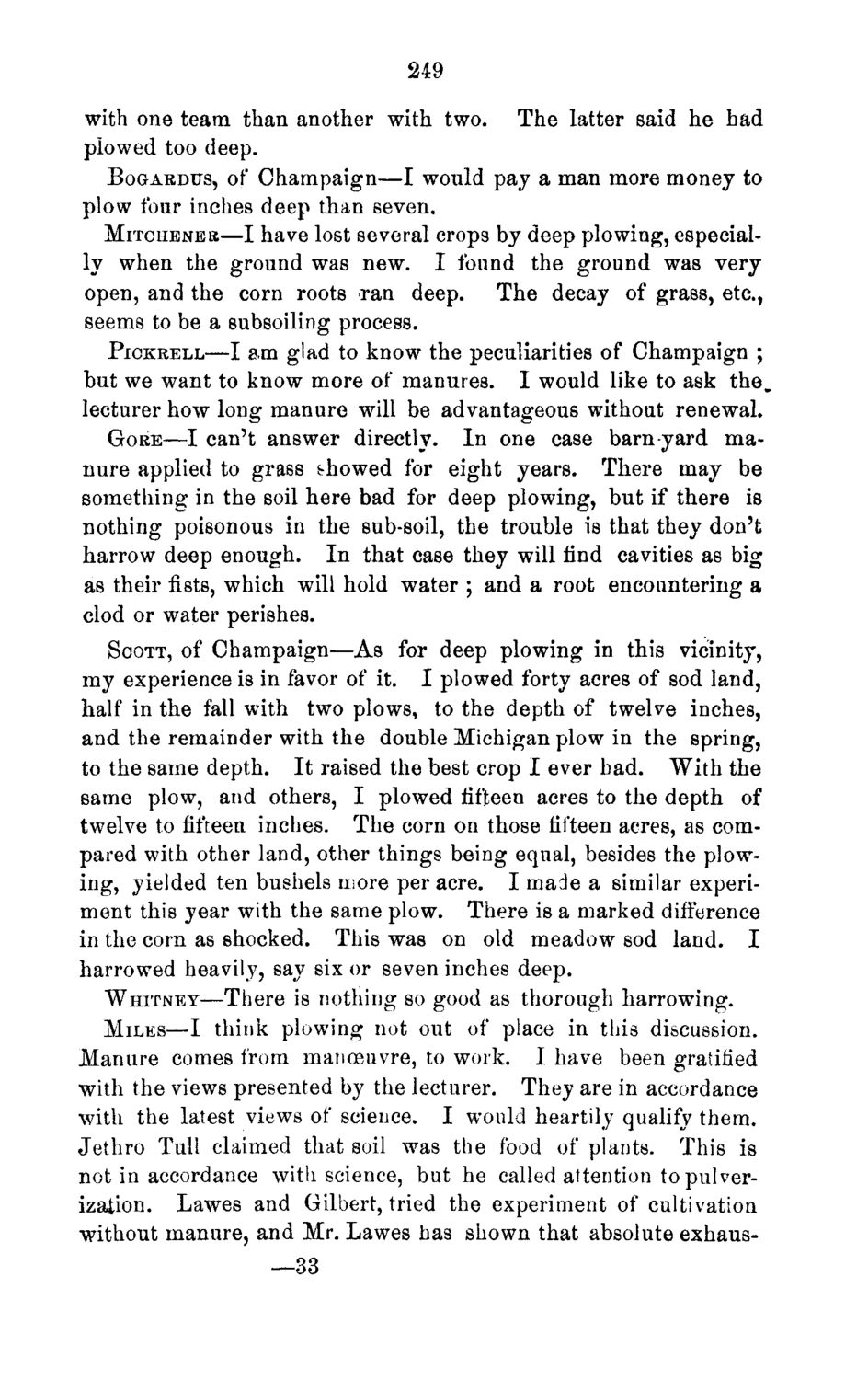| |
| |
Caption: Board of Trustees Minutes - 1870
This is a reduced-resolution page image for fast online browsing.

EXTRACTED TEXT FROM PAGE:
249 with one team than another with two. The latter said he had plowed too deep. BOGARDUS, of Champaign—I would pay a man more money to plow four inches deep than seven. MITCHENEB—I have lost several crops by deep plowing, especially when the ground was new. I found the ground was very open, and the corn roots ran deep. The decay of grass, etc., seems to be a subsoiling process. PICKRELL—I am glad to know the peculiarities of Champaign ; but we want to know more of manures. I would like to ask the, lecturer how long manure will be advantageous without renewal. GORE—I can't answer directly. In one case barn-yard manure applied to grass showed for eight years. There may be something in the soil here bad for deep plowing, but if there is nothing poisonous in the sub-soil, the trouble is that they don't harrow deep enough. In that case they will find cavities as big as their fists, which will hold water ; and a root encountering a clod or water perishes. SOOTT, of Champaign—As for deep plowing in this vicinity, my experience is in favor of it. I plowed forty acres of sod land, half in the fall with two plows, to the depth of twelve inches, and the remainder with the double Michigan plow in the spring, to the same depth. It raised the best crop I ever had. With the same plow, and others, I plowed fifteen acres to the depth of twelve to fifteen inches. The corn on those fifteen acres, as compared with other land, other things being equal, besides the plowing, yielded ten bushels more per acre. I made a similar experiment this year with the same plow. There is a marked difference in the corn as shocked. This was on old meadow sod land. I harrowed heavily, say six or seven inches deep. WHITNEY—There is nothing so good as thorough harrowing. MILES—I think plowing not out of place in this discussion. Manure comes from manoeuvre, to work. I have been gratified with the views presented by the lecturer. They are in accordance with the latest views of science. I would heartily qualify them. Jethro Tull claimed that soil was the food of plants. This is not in accordance with science, but he called attention to pulverization. Lawes and Gilbert, tried the experiment of cultivation without manure, and Mr. Lawes has shown that absolute exhaus—33
| |